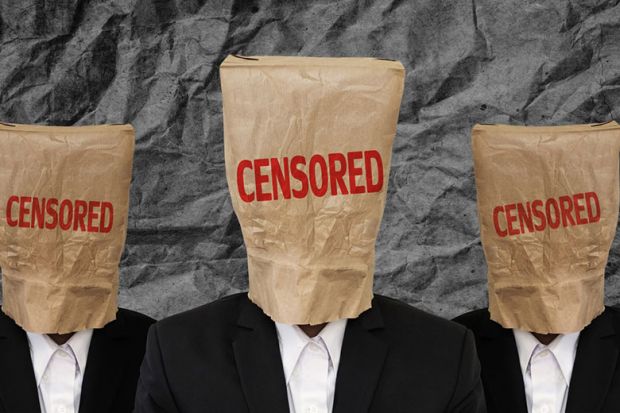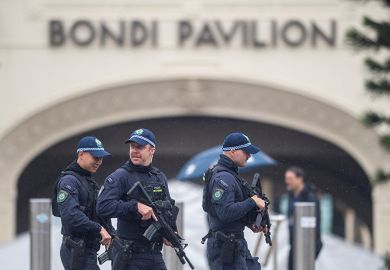Australia’s democratic accountability, emblazoned in its transparent institutions and free press, supposedly distinguishes us from our more authoritarian neighbours. But increasingly this seems more a rhetorical distinction than a tangible one.
Major media organisations are currently locking horns with the government over press freedom concerns sparked by Australian Federal Police raids on ABC journalists Dan Oakes and Sam Clark and News Corp’s Annika Smethurst. The trio incurred the ire of the authorities by reporting classified information in stories about military abuses in Afghanistan and an attempt to boost a security agency’s powers.
Source confidentiality may have been compromised after the plods seized the journalists’ files, using what the media organisations say were invalid search warrants. Police applications to obtain the ABC reporters’ fingerprints prompted the headline: “Investigative journalism being put in same category as criminality.”
The attorney-general, Christian Porter, tried to hose down concerns by ordering the police to consult him before charging journalists under security laws. This raised the spectre of the federal prosecutor’s independence being undermined by an obligation to obtain the AG’s consent.
Legal groups’ objections to this seemed to be shared by Prime Minister Scott Morrison, who said decisions about prosecutions under national security laws shouldn’t hinge on the “whim of politicians”.
Meanwhile, information requisitioned under freedom of information laws arrives largely redacted, if at all. This has prompted a coordinated response from the major newspapers, who inked out their entire front pages in a synchronised “Right to Know” campaign.
A veil of darkness is descending on many domains of Australian public life. And higher education is far from immune.
Access to information, never particularly fluid, is the worst I’ve seen in over a decade, as politicians and bureaucrats choke the flow of information that researchers and journalists need to do their jobs.
The redoubtable Andrew Norton, lately of the Grattan Institute, lost access to the stock-in-trade statistical information underpinning his informed and influential reports – unit record enrolment data – because of government security concerns.
He now has some prospect of regaining access because his new employer, the Australian National University, has taken the necessary steps to obtain this data.
Meanwhile, details of research grants have been withheld from the researchers themselves as the government squeezes funding announcements for every last drop of their feeble PR value. A compromise arrangement to inform the researchers under embargo faltered because of threats against anybody who dared defy the embargo.
And in a piece of message management, the government recently released three bulky volumes of data all at once, just after a parliamentary sitting week, arguably to frustrate scrutiny.
It’s not just politicians. The trade counsellors working in Australia’s foreign posts share their considerable knowledge and insights with journalists, in a symbiotic arrangement that generates better informed reporting while promoting official Australian perspectives. These people, employed by the trade department or Austrade, are worldly, informed and approachable.
Their cousins employed by the education department, the education counsellors, could be an even more potent resource because of their education specialisation. They’re certainly worldly. They’re certainly informed. But approachable? Not while the education department calls the shots.
If you’re an Australian journalist hoping to chat to Australian education officials in Beijing, say – forget it. You would probably have more luck chatting to Chinese education officials.
And if you have the temerity to ask questions raised by a meticulously researched, informative, publicly available Australian education department commentary about developments in Chinese education policy? You will be told straight-faced that the Australian government doesn’t offer commentary on other countries’ policies.
And if you would like to attend a Sydney public symposium featuring the education counsellor from, say, Jakarta? Forget it. You will be told “it would not be appropriate” because education department officials will be discussing a yet-to-be-released report (even though you are pretty sure you have already covered that report).
One piece of public policy, currently playing a role in a controversy of relevance to the higher education sector, reads more like something written by Catch 22 author Joseph Heller.
Under a state whistleblower’s law, ostensibly crafted to prevent public authorities from victimising employees who make disclosures in the public interest, it is a criminal offence to identify organisations that have attracted action under the law.
In other words, whistleblowers who use the law to try to defend themselves automatically muzzle themselves from speaking out against their oppressors.
In a judgment published in July, as part of ongoing court proceedings, the judge raised the extraordinary possibility that an applicant could breach the law simply by communicating with his or her lawyers. In fact, he or she could conceivably be breaking the law by the very act of taking action under the law.
This, in Australia – that bastion of transparency in a region not known for it.
Evidence? Accountability? Free speech? Good luck with that.
John Ross is the Asia-Pacific editor for Times Higher Education. He is based in Sydney.
Register to continue
Why register?
- Registration is free and only takes a moment
- Once registered, you can read 3 articles a month
- Sign up for our newsletter
Subscribe
Or subscribe for unlimited access to:
- Unlimited access to news, views, insights & reviews
- Digital editions
- Digital access to THE’s university and college rankings analysis
Already registered or a current subscriber?






